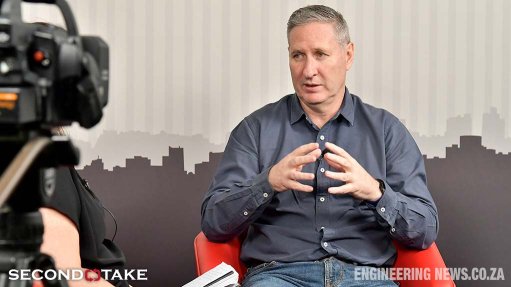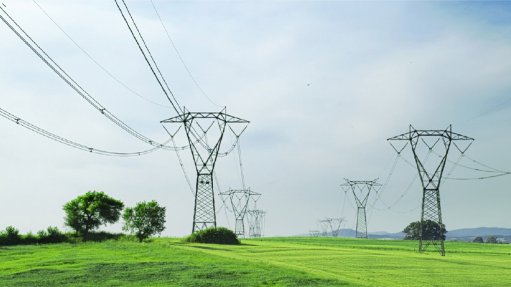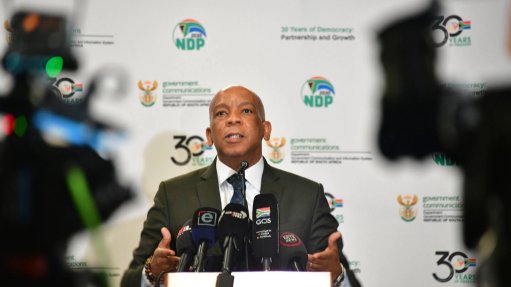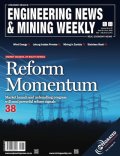Organisations should seize Eskom power crisis as an opportunity to further their ESG goals
This article has been supplied.
By Chris Kruger – MD at enterprise solutions-focused Total Workspace Provider, Nashua Kopano
South African enterprises should look at the load shedding crisis as an opportunity to accelerate their move towards sustainable power sources, and thereby advance their environmental, social and governance (ESG) goals. Those that get it right could dramatically reduce their energy costs, strengthen their brands and reputations, and gain a competitive advantage.
That’s according to Chris Kruger, Managing Director at enterprise solutions-focused Total Workspace Provider, Nashua Kopano. He says that the current power crisis in South Africa is partly the product of a high reliance on dirty power sources such as coal and a slow transition towards renewable power sources such as wind and solar.
South Africa is the 12th-largest greenhouse gas emitter in the world, with per person emissions that are above the global average. This is a product of the country’s reliance on an ageing coal fleet to produce around 80% of its electricity. It means South African companies generate high levels of Scope 2 emissions, those associated with the purchase of electricity, steam, heat, or cooling.
Reducing emissions and strengthening ESG credentials through renewable energy
Says Kruger: “We’re just halfway through 2023 and South Africa has already endured more hours of load shedding than it did in 2022. Implementing a solar backup solution is essential for businesses that want to minimise the operational disruptions caused by daily load shedding. But as importantly, becoming more independent from the grid can enable companies to dramatically reduce their emissions.
“On a national scale, accelerating adoption of renewable energy is essential for South Africa to meet its 2050 net zero commitment. But for each company, solutions such as grid-tied or off-grid solar installations can help them to dramatically reduce their Scope 2 emissions. This, in turn, can strengthen their ESG credentials.”
Kruger notes that a commitment to sustainability can give organisations an advantage in a world where the climate emergency is high on the agenda. Regulators, consumers, commercial customers, government, and other parties are looking to the companies they deal with to reduce emissions, with penalties for those who fall behind and incentives for those that lead the way.
Sustainability can help companies win business and improve their reputations. South African consumers are becoming increasingly climate-aware, with 81% reporting that they feel sustainability is more important to them than it was two years ago in a recent survey. On the B2B front, many companies are looking to reduce Scope 3 emissions (those produced in their value chain) to improve their ESG metrics.
“ESG is an especially important factor for export-focused organisations targeting countries with more aggressive goals to reduce carbon emissions,” says Kruger. “Good ESG credentials are also important when seeking finance—many institutions look at sustainability as one of their criteria for loans and investment. Sustainable companies and projects are more likely to get capital on favourable terms.”
Financial incentives for renewable energy: A win-win solution
There are also strong financial incentives for implementing renewables, especially with power costs rising. Government is gradually increasing carbon taxes and expanding their scope on a polluter-pays principle. It has also introduced a 125% deduction in tax in the first year for renewable energy projects. This accelerates the return on investment for putting solar in place.
Says Kruger: “As unwanted as the load shedding crisis is, South Africa faces the need to step up the pace of its just transition to renewables. With prices of solar solutions falling and a range of innovative financing models, organisations can simultaneously reduce electricity costs and their carbon footprints while improving business continuity.”
Comments
Press Office
Announcements
What's On
Subscribe to improve your user experience...
Option 1 (equivalent of R125 a month):
Receive a weekly copy of Creamer Media's Engineering News & Mining Weekly magazine
(print copy for those in South Africa and e-magazine for those outside of South Africa)
Receive daily email newsletters
Access to full search results
Access archive of magazine back copies
Access to Projects in Progress
Access to ONE Research Report of your choice in PDF format
Option 2 (equivalent of R375 a month):
All benefits from Option 1
PLUS
Access to Creamer Media's Research Channel Africa for ALL Research Reports, in PDF format, on various industrial and mining sectors
including Electricity; Water; Energy Transition; Hydrogen; Roads, Rail and Ports; Coal; Gold; Platinum; Battery Metals; etc.
Already a subscriber?
Forgotten your password?
Receive weekly copy of Creamer Media's Engineering News & Mining Weekly magazine (print copy for those in South Africa and e-magazine for those outside of South Africa)
➕
Recieve daily email newsletters
➕
Access to full search results
➕
Access archive of magazine back copies
➕
Access to Projects in Progress
➕
Access to ONE Research Report of your choice in PDF format
RESEARCH CHANNEL AFRICA
R4500 (equivalent of R375 a month)
SUBSCRIBEAll benefits from Option 1
➕
Access to Creamer Media's Research Channel Africa for ALL Research Reports on various industrial and mining sectors, in PDF format, including on:
Electricity
➕
Water
➕
Energy Transition
➕
Hydrogen
➕
Roads, Rail and Ports
➕
Coal
➕
Gold
➕
Platinum
➕
Battery Metals
➕
etc.
Receive all benefits from Option 1 or Option 2 delivered to numerous people at your company
➕
Multiple User names and Passwords for simultaneous log-ins
➕
Intranet integration access to all in your organisation















